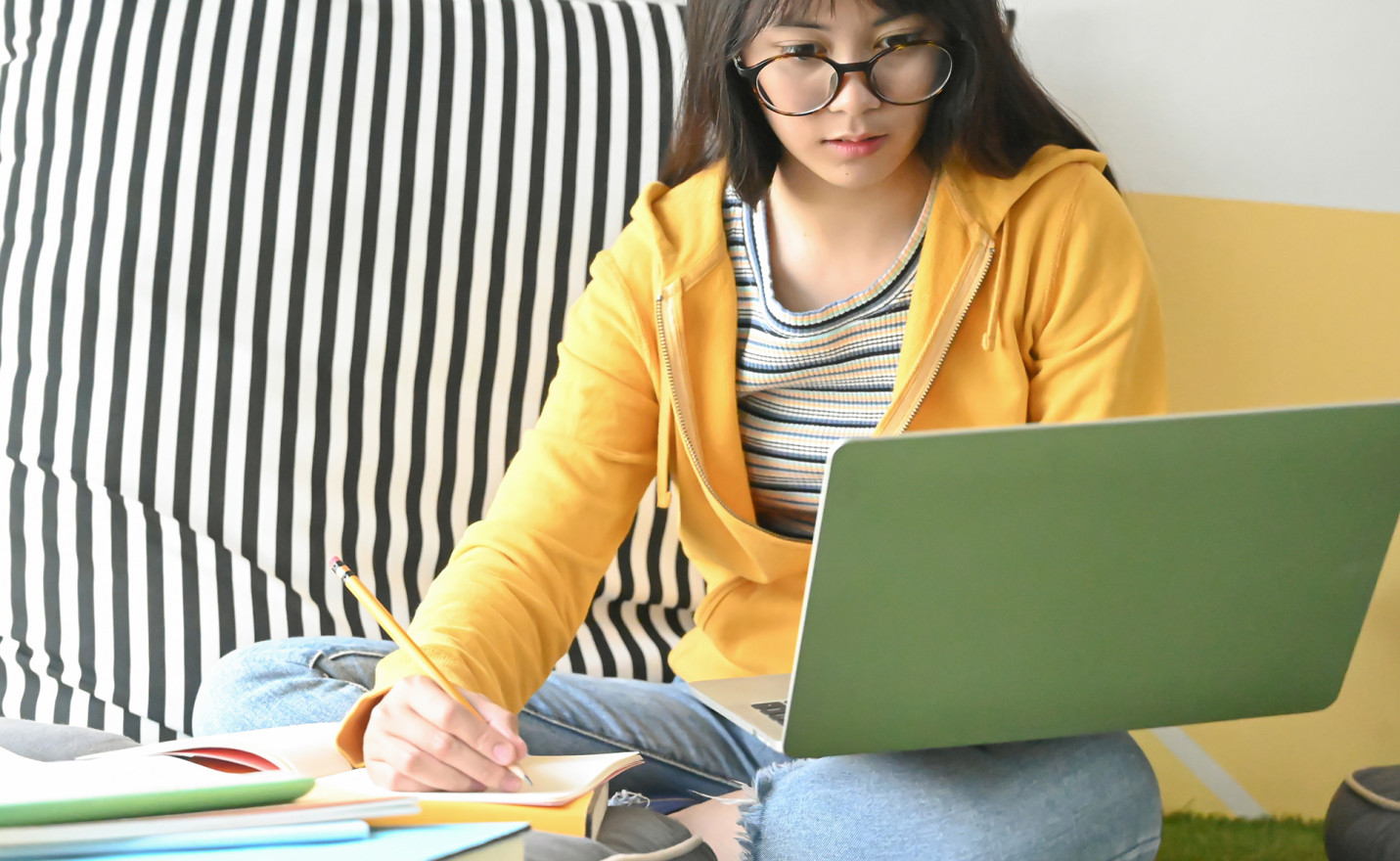
How are college students handling the transition to all e-learning? Six students at SUNY Plattsburgh provided an update.

How are college students handling the transition to all e-learning? Six students at SUNY Plattsburgh provided an update.
COVID-19 has proven to be a major threat to higher education. Most colleges and universities around the United States have shuttered their on-campus functions and are operating in virtual environments only.
These transitions force the question: Is higher education as we know it sustainable?
Six SUNY Plattsburgh Planet Forward Correspondents and contributors had a virtual happy hour to talk about their experiences adapting to the uncertainties of coronavirus, college life at home, online courses, and the cancellation of upcoming graduation, study abroad experiences and other events. It is worth noting that a seventh member of our team could not join the conversation because he was tending to a relative diagnosed with COVID-19.
Q. Describe your experience converting to a full online college experience. Is this stressful? Are you enjoying this experiment?
Aziza Alvarenga: My adjustment to online learning has been gradual. It can get pretty stressful at times, especially with almost the whole family here at home — including my 8-year-old brother and 16-year-old sister. My sister and I have to divide and dedicate our time to helping out our younger brother, who also has a full load of classwork to do every single day.
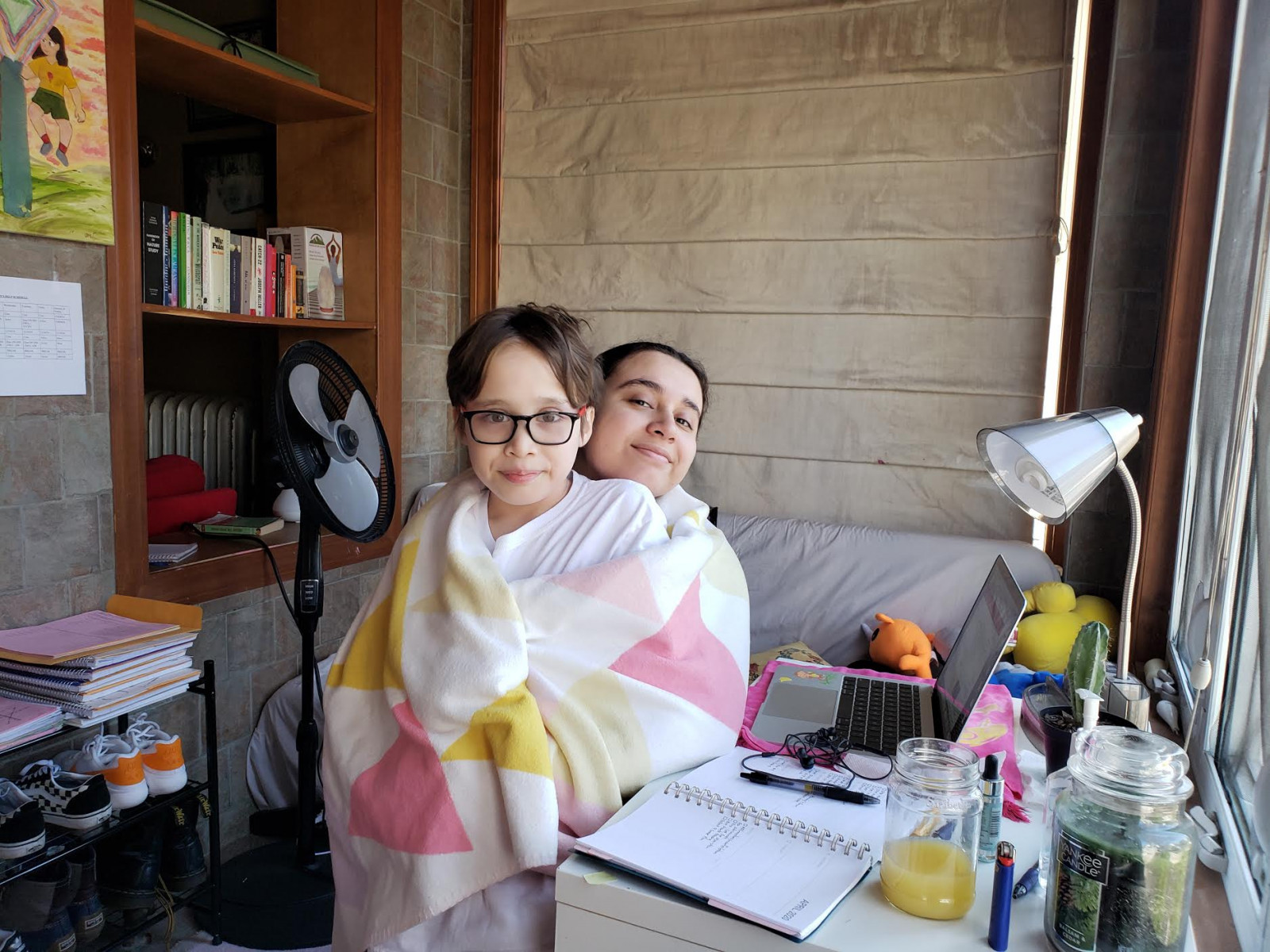
On average, we spend 24 hours a week together helping him figure out his own online learning experience, while trying to navigate our own. I’m really stressed out and it doesn’t help that some teachers are expecting to actually “show up” to class via Zoom, and also seemingly giving us more work to “compensate” for the fact that we are fully online now! This is really stressful and frustrating. I’m trying to keep my head up and remain positive in such a stressful time, but I feel like I really have no time to myself now. Not to mention the stress of actually living in the epicenter of COVID-19 cases in the United States and worrying about my family’s safety every single day!
Rahmel Pacheco: The main problem that I have is that the majority of my classes this semester are discussion based. One of my classes does not have exams, projects, or quizzes. We are assessed purely on participation, so converting to online learning has taken away the fun and excitement out of that class and many of my other ones also. One the upside, this experiment is allowing me to create my own routines. I dedicate one whole day to school work and don’t have to do anything besides “go to class” for the rest of the week.
Charles Olsen: This is not fun at all. It has recently been as if there is more work than before the classes were moved online. On top of that, there is not a lot of structure that helps me keep up on the work that’s due. I particularly have been stressed about all of the non-school related things that are happening, and it makes school and classes seem like a joke…
Emma Stewart: For me, the transition has not been terrible, I am adjusting surprisingly well. Though I will admit I am still stressing out. To make up for not having in class lectures, a few of my teachers are assigning more work than usual, so adjusting is difficult. I have been working on making a set schedule that works for me but it’s hard because I’ve never experienced anything like this before, and things change so fast. So far, I have slowly learned to cope with this new normal, and will continue when things change.
Samantha Beck: I definitely do not enjoy this experiment, however I realize how lucky I am to have most of the technology and work space to continue in this distance learning environment and I feel like there is not much else we can do about the situation. I’m trying to think positively about it, but I feel like I’ve been playing a constant game of catch up work-wise.
Hadar Pepperstone: The transition from in person classes to online was not too stressful, especially when compared to the reasons that we are moving online. It’s been much harder to leave the extracurricular things behind, like spending time and studying with friends and doing club activities, than physical classes. It could definitely be going worse overall, but I would not recommend this model, or at least not this sudden switch of medium, to anyone.
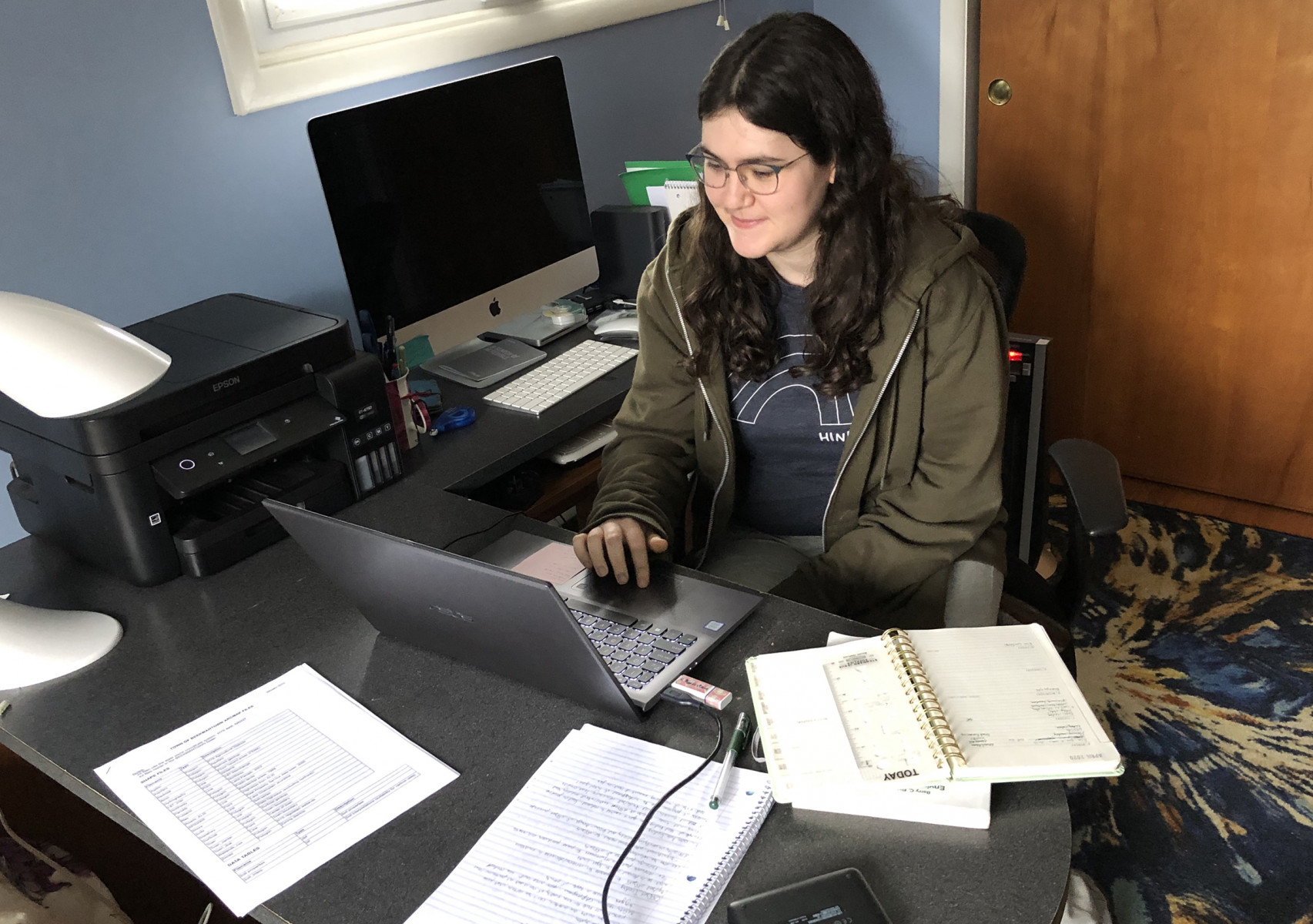
Q: Describe your new work environment. Where are you working? What’s it sound like? What’s it look like? What’s it smell like? What are the biggest distractions in your new work environment? Home? Siblings? Parents? Pets? Noise?
Aziza: My family decided it would be best if I just come back home, so my new work space is a little makeshift “office” in my house’s sunroom. My little sister had the idea of putting it together for me, knowing that making the change from living on campus to our lively, loud home would be radically different. I’ve got an 8-year-old brother, a 16-year-old sister, and my mom and grandma living here. It can get pretty hectic, especially with the young one. Being home in and of itself is a major distraction for me (which is why I wanted to go to college far from home). I don’t really work well at home, but regardless, I really appreciate my family trying their best to maintain a schedule for all of us to find some silence and time for us to do our work. We’re all just trying our best in such a stressful situation.
Emma: I live with my boyfriend, my mom and her boyfriend at the moment. My new work environment consists of me secluded in my room with my cat, lizard, and occasionally my dog coming in and out. I am lucky to not have many distractions while being at home, so getting things done is not bad. Usually my common working space includes me listening to music, sitting on my bed and typing away.
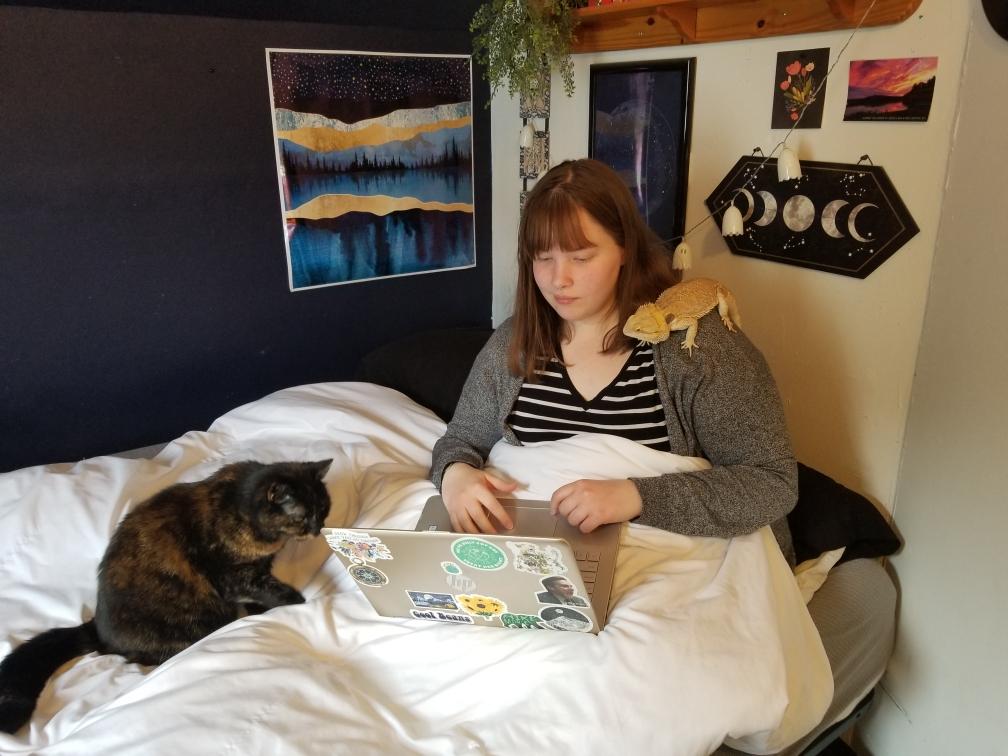
Rahmel: I am still on Plattsburgh’s campus and planning to stay here for the rest of the semester. I work mostly in my room or in my suit common area. It has been extremely quiet since there is no one on my floor much less the entirety of the campus.
Hadar: I have my own room with a large desk where I can spread all my stuff out, which makes everything a lot easier. My parents and two younger siblings are home all day too, and at any time there are probably at least two people in online meetings or classes, so the noise level is pretty low for everyone’s sake. Luckily, my family gets along really well and we hang out and talk a lot, but that leads to a lot of distractions when I’m in class or trying to get homework done. It’s not like at school where I can hunker down in my room or the library alone for a few hours and get a lot accomplished all at once–my work time is much more fragmented now, making it harder to stay motivated.
Samantha: I am at home in Allentown, Pennsylvania, with my mom, dad, brother, and my boyfriend. He and I have a large room and desk converted into a work space above the garage in my house. I would say the biggest distractions are working within inches of another human who is also a student and participating in lectures, as well as being near windows. Since the weather is warm here, I absolutely cannot get work done without constantly being distracted on a nice day.
Q: As an environmental science/studies student, are their specific things that make the experience of moving to online learning difficult? Is environmental work more conducive to online learning than you thought? Does this experience differ from your expectations? Are you developing new work habits or patterns?
Samantha: I do not have major difficulties, this semester is the first that I am only in one lab class as opposed to multiple. However my laptop cannot handle the software for this lab so I have to do it remotely, which has given me problems. I also feel like I am obviously not participating much, despite having a lot to say because I would feel that I am interrupting a professor when they are doing a Zoom lecture. My work habits have definitely changed, I still attend class at the same time but have an increased workload which makes it seem like I’m in class, doing work, eating or having an hour or two to myself (that I should be using for work).
Aziza: My geology and biology labs are the only things that are really being impacted by online learning, seeing as though they’re more of a collaborative, hands-on learning experience. I think we’re all just trying to tough it out to the best of our abilities.
Emma: With being an environmental science planning and management major, some aspects of moving online are easier than others. For instance, my planning class was an easy transition because the majority of collaboration can be done virtually. However, science labs have been more difficult. My geology and ecology lab are based on hands-on learning, and field work. Both of those classes had numerous field trips planned for the next coming weeks when the weather permitted. Not being able to have these real life experiences I believe may stunt my ability to better understand the material. I was excited to do field work with my classmates but now I can only imagine it. Overall, environmental science is a major that requires a lot of experiential learning, but none the less we will work through this the best we can.
Q: How are your instructors maintaining connections to the natural world and environment in your courses? It’s easy to lose sight of the purpose of environmental work when you can’t go outside and learning is all online. How are you maintaining a connection to the environment?
Emma: With environmental science, making real world connections by learning outside is important, but my professors are doing their best to provide that virtually. For example, my ecology professor is going to virtually show us the field trip we would have experienced with pictures and video. Even though this cannot live up to the real thing, it is what we have to work with in these times, and professors are working hard to provide us with the best material possible. Within social distancing guidelines, I from time to time take walks around surrounding streets or take a long drive through the outskirts of plattsburgh so I can still feel a sense of normalcy and stay connected to the outdoors.
Hadar: Not much is happening with the outdoors. I’m not in many classes directly related to nature itself, so it makes sense that my professors aren’t focusing on maintaining that connection in most classes. I’ve been trying to spend time in the backyard and go on walks when it’s nice out, which is nice. As the weather gets warmer, hopefully that will be happening more and more often.
Samantha: My professors have not been maintaining connections with the natural world other than in discussions (which I don’t blame them for, because as a professor it’s increasingly difficult for them to make connections in distance learning.) However, part of the reason why I returned home is for the access to a car and the increase of recreation I can do in local parks. I have been hiking, biking or walking every day that the weather cooperates. This helps.
Q: How are you maintaining sanity these days? What do you do to relieve stress? Is this different from how you relaxed prior to COVID-19?
Rahmel: I find myself turning my hobbies and leisurely things that I do into priorities. That could be feeling obligated to reading a certain amount of pages in a book a day or watching a number of episodes of a show a day. I’ve broken up activities into four days. One day is dedicated to homework. Another to watching movies, anime, and TV shows. Another to reading (I have A LOT of books) and reading comic books online. And another day dedicated to creative writing.
Aziza: Honestly, it’s been pretty difficult to maintain sanity these days and I think I can also speak for my whole family when I say that. We all try to find some time to ourselves to play video games, watch a light hearted show, or read a good book. We mainly relax during the weekends, because the week days are always busy for us. For me personally, I’ve been trying to read more for leisure and have been practicing some yoga to relieve stress. My family and I go for brisk walks every now and then, and we also try to do some home workouts to not completely lose ourselves. I think we’re gradually getting better at balancing our time and it can only keep getting better from here on out!
Emma: During my time at home, I’ve had to keep myself somewhat occupied so I don’t go stir crazy. Though in some ways, it is nice having some time to myself to relax without many obligations. I maintain my sanity in a few different ways. My favorite lately has been cooking. It’s rewarding to make a new dish and share it with everyone else in the house. I’ve also been attempting more art like painting and drawing. When relaxing I like to watch TV and just chill. In these times I think it’s really important to try new things and improve on your skills while you have time, as well as relax.
Charles: I find that trying hard to maintain sanity does not work too well. What I have been doing is a lot of cooking, watching tv, playing some video games, and looking at a ton of memes. I find that in a time like this it has been helpful to focus on the things that we can control. I know that there is not much that we can control these days, so take every day at a time and focus on what we can do during that day.
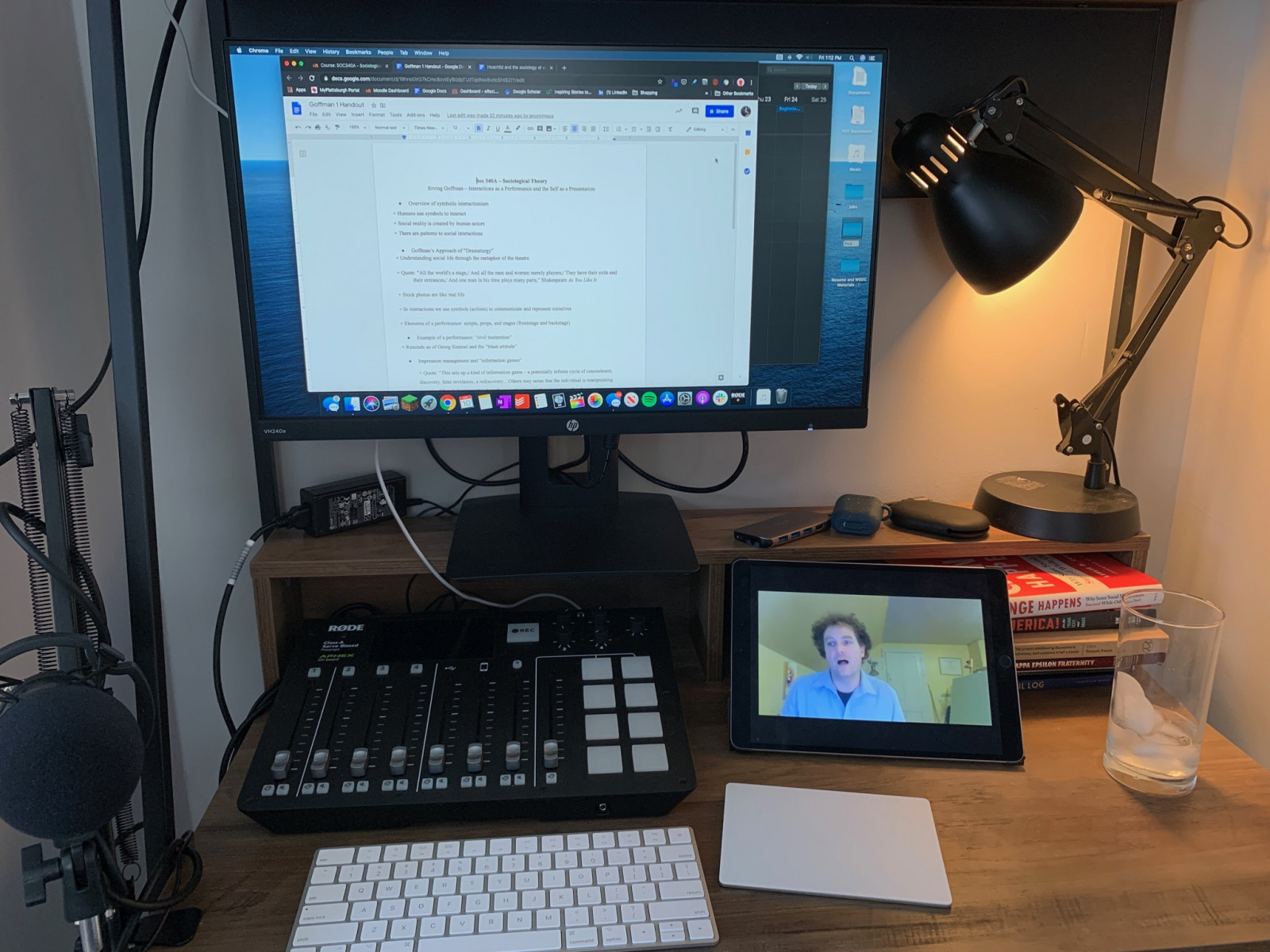
Samantha: I have not had as much down time, I normally LOVE to read but at the end of the day the last thing I want to do is an activity that I have to think about. Also I have been getting migraines the past week and I think it may have to do with the large increase in screen-time. So I have not been reading at all, I have been going on bike rides and walks as well as baking.
Hadar: I’m doing about the same things as I was before; I like watching Netflix and YouTube, as well as doing some craft things. My family also plays a lot of board games, so that’s fun. I’m also trying to read more. And I’ve essentially replaced social time with friends with family time. It’s also about the things I’m trying NOT to do, like read too much news or social media.
Q: What lessons from this experience do you want to pass to future online students in the environmental field?
Hadar: Collaboration is such a significant part of the field, which I knew intellectually before, but has really sunk in recently. I definitely miss being able to engage in my classes in person. But, it is possible to do this learning and, I assume, professional work virtually. Like with any loosely structured learning experience, having and maintaining a schedule for yourself is really helpful, too.
Emma: I think it’s important to have constant communication with your professor, because it is really easy to fall behind otherwise. I want future online students to know that a transition like this is hard, but it’s not impossible to succeed. I think it’s important to remember that professors are having just as hard of a time as you, and most are willing to work with you through it. Having environmental science classes online requires a lot of critical thinking on your own and virtual collaboration.
Samantha: I think it’s important to stay focused, make a schedule, maintain communication, ASK FOR HELP (I have found myself asking for help/clarification much more than I normally would now.), and take breaks when needed.
So what’s next?
If our training in environmental science, studies and sustainability teach us anything, it’s the power of resilience. In the time of COVID-19 SUNY Plattsburgh students and students around the world are putting that learning to work making the transition to online learning, life off of campus, and staying healthy. From SUNY Plattsburgh’s Planet Forward team to yours, we wish you the best of luck and health. We’re all in this together and our hope is that we can continue to learn together and strengthen our environmental movement in the process.